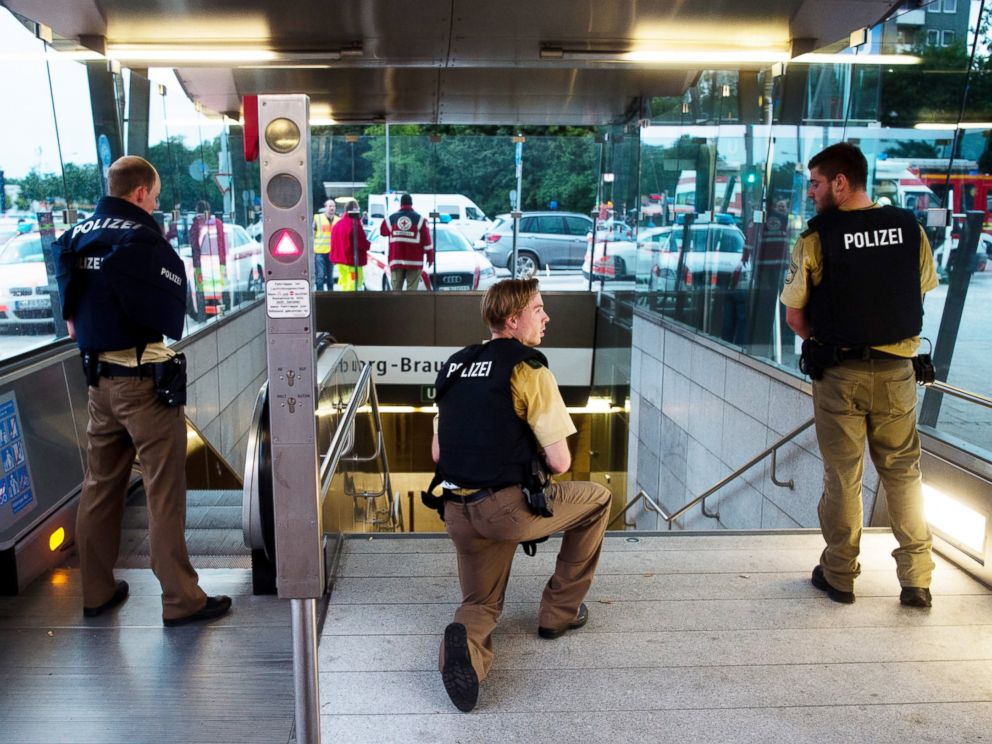An official report on Tuesday in Berlin disclosed that the series of bloodshed in Germany had put the country under heavier pressure to tighten refugee policy.
A government official said on condition of anonymity that Germany had been shaken by four attacks in a week, three of them by asylum seekers while two of them were claimed by the Islamic State (ISIS).
He said that social insecurity prompted criticism again over the German government’s open-door refugee policies.
The official said that the calls for tougher control over refugees renewed after the Sunday explosion in Ansbach in the southern German state of Bavaria that killed the 27-year-old Syrian perpetrator himself and wounded 15 people.
He said that the blast that took place at the entrance of an outdoor music festival was claimed by the IS again, following a July 18 axe attack by a 17-year-old Afghan refugee on a train near the southern city of Wurzburg, in which five people were injured and the attacker was shot dead by police.
He added that on Sunday hours before the Ansbach blast, a 21-year-old Syrian refugee killed a 45-year-old Polish woman with a machete in what the police said was a crime of passion in the southwestern city of Reutlingen.
“A deadly shooting spree late Friday in Munich, with no link found with terrorism, killed nine innocents.
“The attacker, a German-born 18-year-old son of Iranian immigrants, shot himself dead,’’ he said.
Bavarian Premier, Horst Seehofer, has demanded a guaranteed disconnection of asylum seekers with the ISIS group.
Seehofer who is a leader of the key partner in Chancellor Angela Merkel’s ruling coalition, said that in 2015, immigrants to Germany surpassed 2 million, an increase of 700,000 over the previous year.
He stated that the official showed that the registered asylum seekers were estimated to exceed 1 million.
Rainer Wendt, Head of the German Police Union (DpolG), has urged the stricter to check on refugees to reduce potential security risks.
He criticised that neither the identities of all people who have come to Germany, nor their mental and physical condition are clarified.
Wendt said that it is more important that government not only accommodate and feed the people, but also determine who was coming to the country and see exactly whether they posed potential risks.
Burkhard Lischka, Spokesperson on Interior Affairs for the Social Democratic parliamentary group, said that after the July 18 axe attack, an estimated 3,000 personnel were needed to beef up the security force, in order to manage the risks facing Germany.
He said that the latest series of bloodshed were expected to feed the xenophobic sentiment and the arguments for regarding refugees as a source of increasing violence of terrorism in Germany.
Lischka said that the integration of immigrants into German society was another issue that drew public attention again.
“The axe-wielding attacker in the July 18 assault had lived in Germany for more than a year, but he had apparently received more influence from the ISIS group.
Lischka said that many acts of terrorism in Western countries were carried out in revenge for the countries’ intervention in regional hot spots.
He said that in this regard, German military involvement in international and regional affairs ahead was expected to make it more prone to terrorism.



Leave a Reply